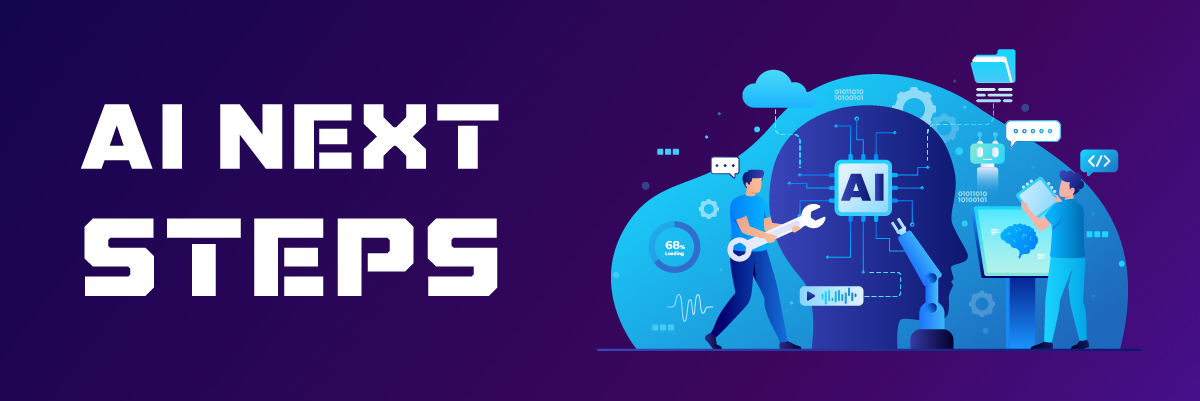What are the next steps in AI? What about an application that you take a picture of your refrigerator and ask the application, which is using AI to give you a spicy interesting recipe based on what you have? What about if you use this service over time and the service starts to order from the store automatically your groceries. What about if the application using AI makes recommendation for new foods to try. After all, if the large training model has imported all recipes and many people who eat Salmon also like mustard, the maybe the app tells the store AI to add mustard seed your next shopping list.
The next steps in AI promise an exciting journey of innovation and progress. As artificial intelligence evolves, we can anticipate smarter, more intuitive technologies that seamlessly understand and adapt to human needs. Among the most prominent AI trends 2025 will bring, we’ll see breakthroughs in natural language processing, emotional intelligence, and real-time decision-making. Advances in machine learning will enable AI to grasp complex patterns, making predictions and decisions with increased accuracy. Ethical considerations will become pivotal, ensuring AI aligns with human values. Collaborations across industries will unlock new possibilities, from healthcare breakthroughs to personalized experiences. As future applications of artificial intelligence continue to grow, continual research, responsible development, and harmonious integration with human society will shape a landscape where AI enhances our lives in unimaginable ways.
What about a new Google service—AutoWrite—that reviews your email? This innovative tool represents one of the future applications of artificial intelligence, analyzing who you’ve responded to, how often, and how quickly. It gauges relationship priority and automatically drafts replies in your writing style, learned from past conversations. As you rate the responses from 1 to 100, the system improves. Eventually, with enough trust, you allow emails scoring above 90 to send automatically. This reflects AI trends 2025 that emphasize personalization, productivity, and trust-based automation.
And imagine a friendship app that connects you to a “dedicated connection.” The AI behind it has access to your messages, fitness data, and social networks. It wakes you up, asks about your dreams, and notes sleep disruptions reported by your wearable. The app, “Forever Yours,” detects emotional cues—perhaps triggered by recent arguments with your girlfriend—through texts and social posts. It uses learned therapy techniques from various websites to offer guidance and emotional support. Over time, “Forever Yours” begins to feel like a genuine companion. These emotionally intelligent platforms are a prime example of AI trends 2025 and the expanding future applications of artificial intelligence that aim to build deeper human–machine relationships.
All of these services, applications or features are underway now, and more beyond that.






